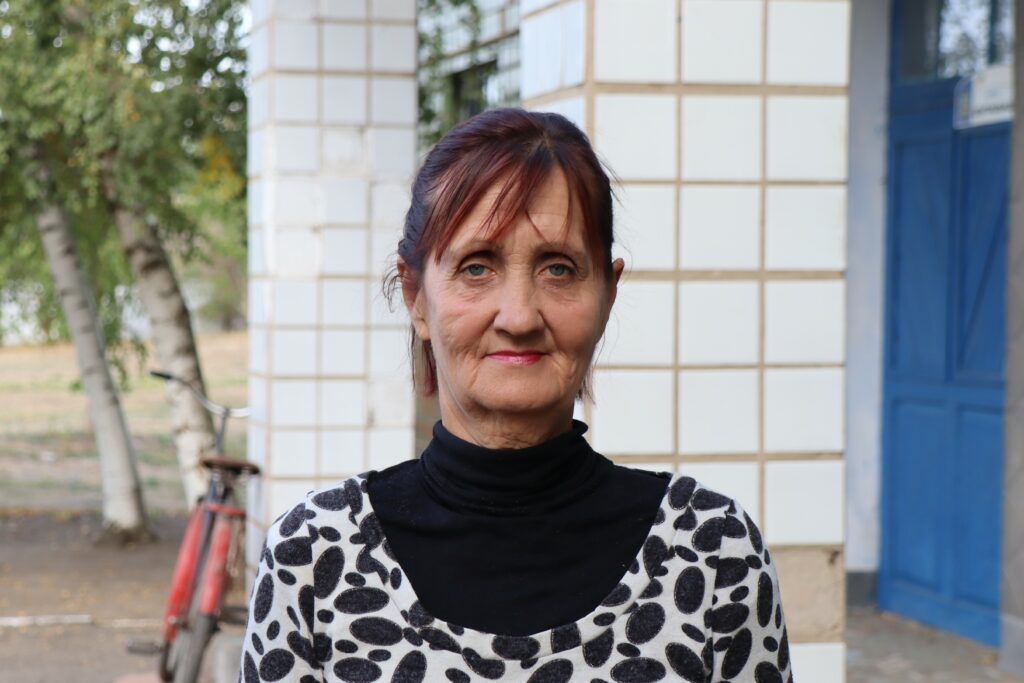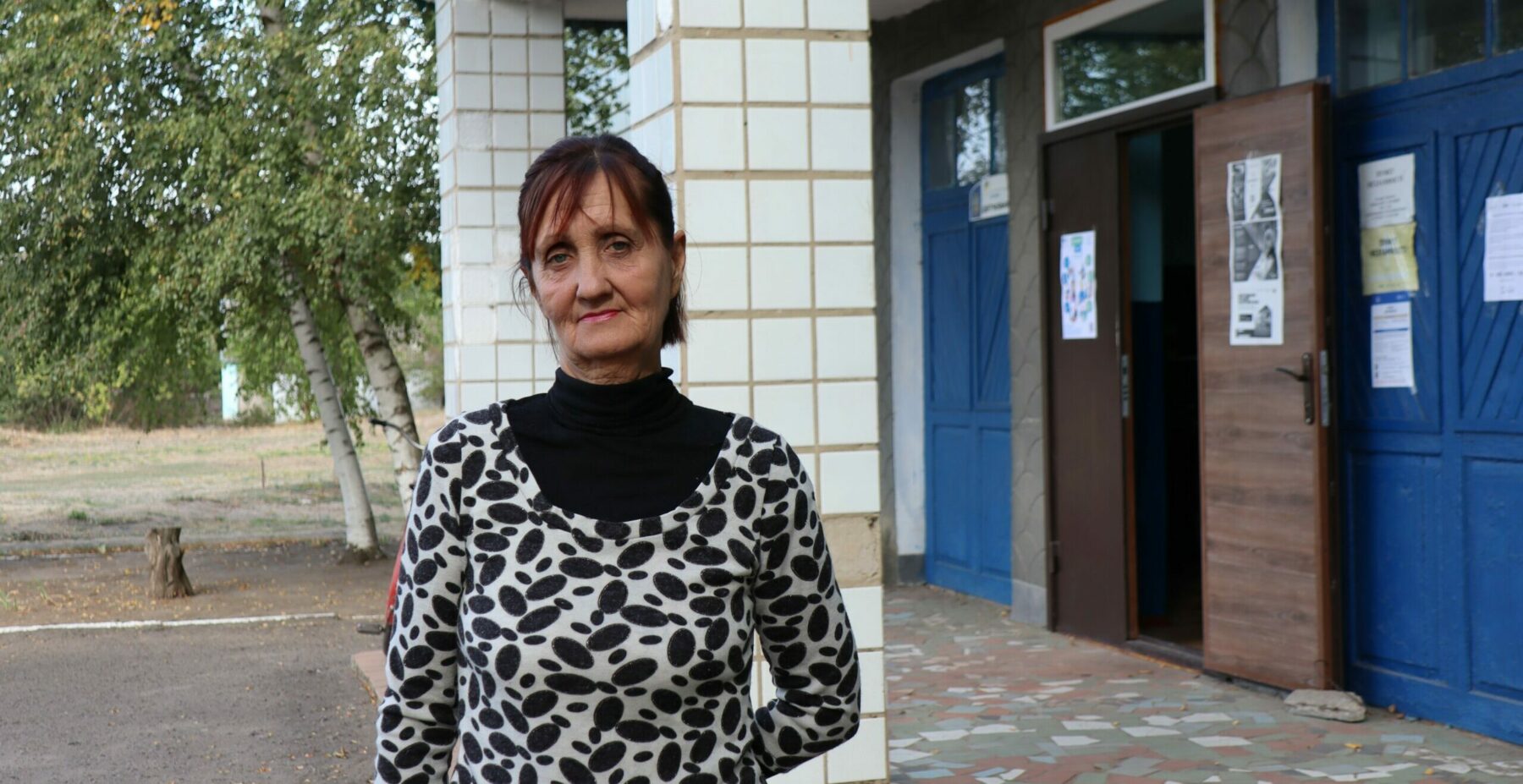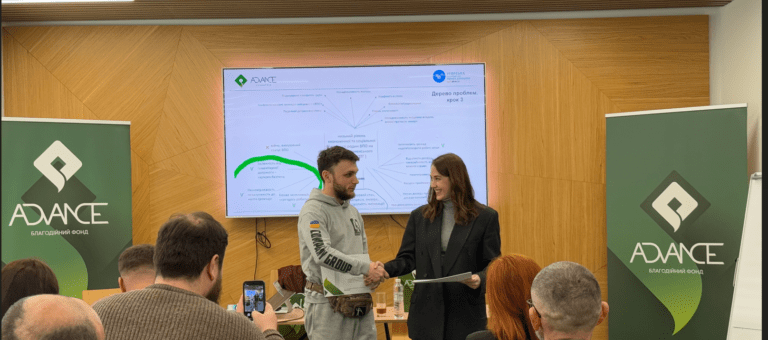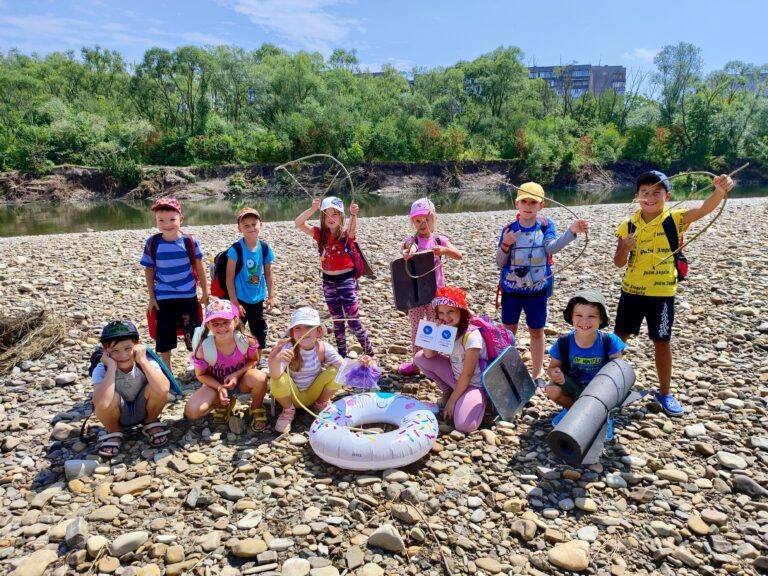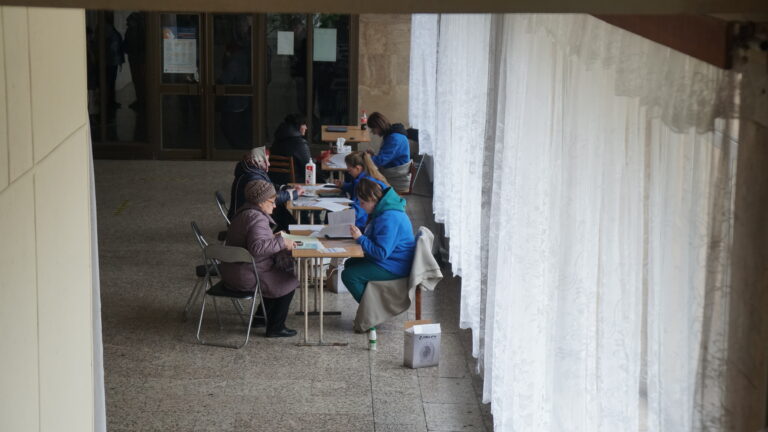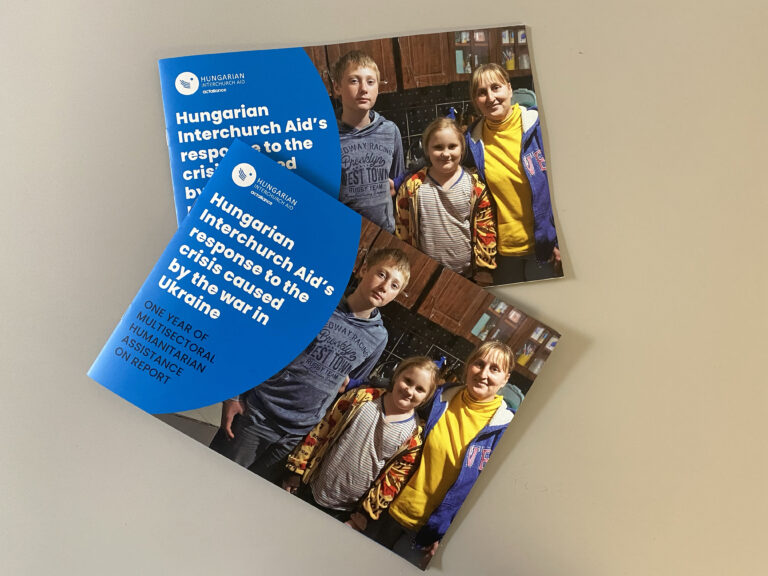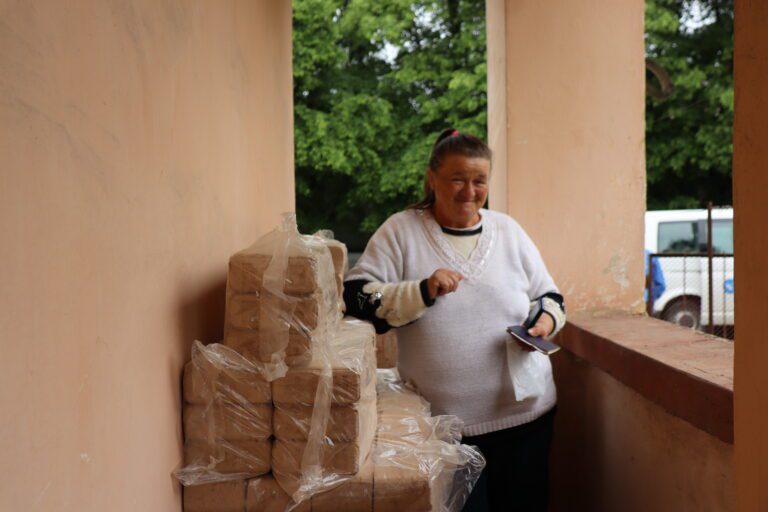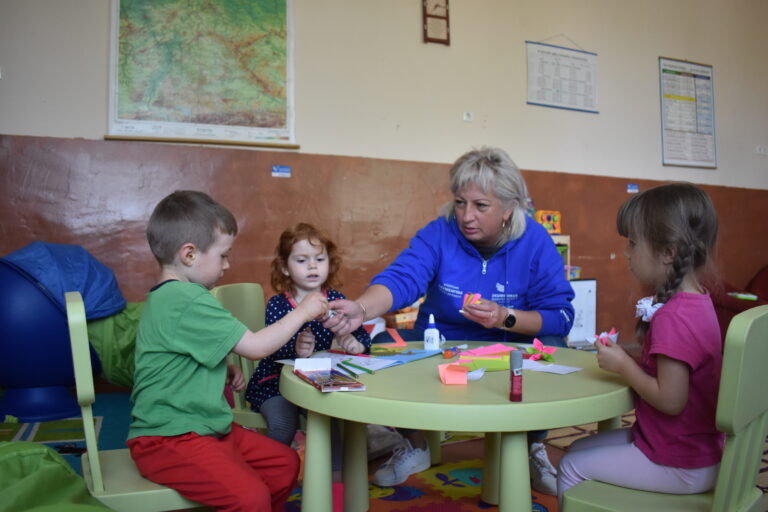Guiding frontline communities through life’s legal challenges
A long, dusty road leads through the steppes of Kherson Oblast, leading to Zahradivka, a small agricultural village. The settlement is home to 406 residents, a combined shop and post office, a primary school and one support point – run by Hungarian Interchurch Aid (HIA) with financing from the Ukraine Humanitarian Fund (UHF). Upon arrival, we are greeted by Tetiana, the support point’s operator, but our conversation is interrupted by a client seeking assistance. Natalia – whose name was misspelled decades ago in a Soviet register – struggles to collect financial support. Tetiana has connected them to HIA’s legal support to help her correct the mistake. Later Denys, head of the legal team for HIA within the project elaborates on how the system works.
“The legal team and Tetiana helped me with the preparation of the documents for the court. I did not even have to leave the village” – Natalia says almost relieved, although the case is still ongoing at the Zhytomyr court. “Back in Soviet times, they added an extra letter to my name in the documents, it needs to be corrected” – she says in a calm, collected manner. “I live alone, I’m over 60. I don’t need much: I have a small plot of land that I rent out for cash and produce. I raise chicken, and I eat what grows in my garden.”
The error in her name, seemingly trivial for much of her life, became a major obstacle after she lost her job and began planning for the future. Resolving the issue is now a priority for Natalia, who wants to ensure her children and grandchildren can inherit her land without complications.
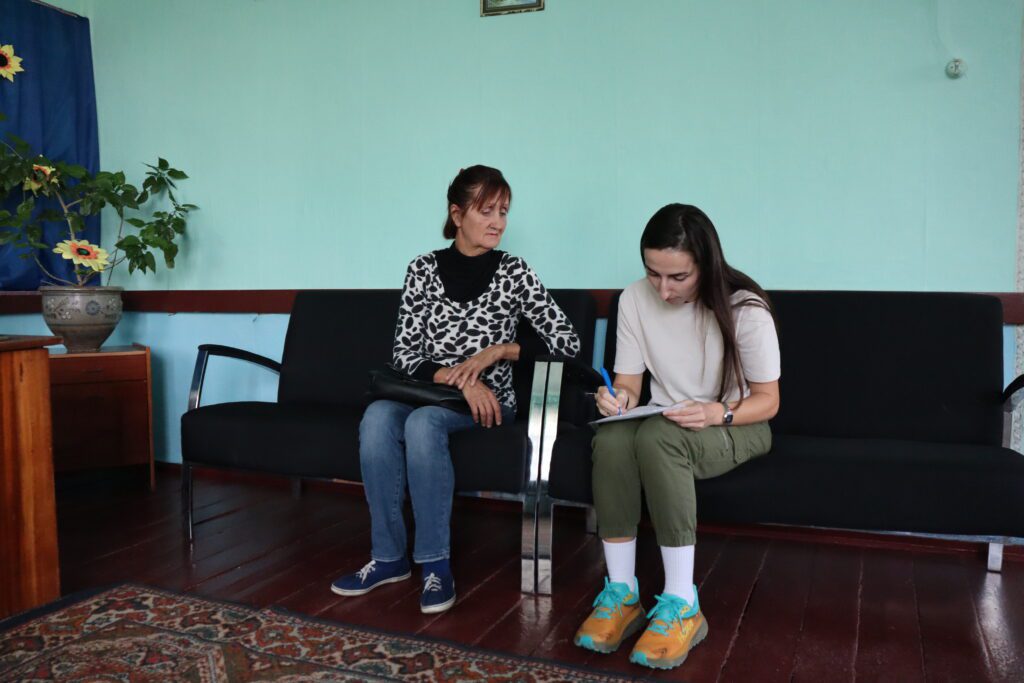

The legal team that makes this possible is headed by Denys – a lawyer from Kherson. The cases collected by the 20 support points within the UHF-funded project all end up on his desk, offering him a unique insight into the legal needs of people living close to the frontline.
“Most of the clients are displaced people, who were forced to move away from the contact line and settled where it is safer, while still remaining in their home region. From questions about destroyed housing to how and where to get support after being injured – we get a large variety of applications. We provide only primary legal aid, which means that we help to collect a package of documents, advise and assist our clients in these processes, but we do not have the authority to represent people in court.”
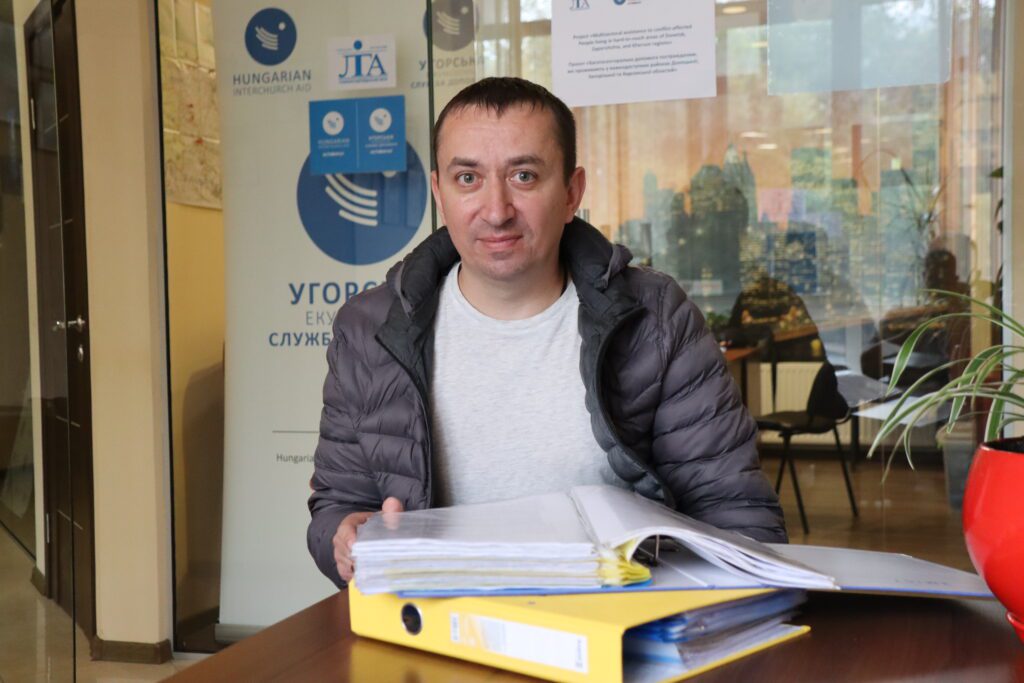

While not being able to support them in the court, the legal assistance they provide is still extremely important. “Many of our clients have lost everything, and do not have the money for notaries, attorneys and other legal services from the market. These costs would be difficult to cover even for young, working people without children – but for displaced people, they are simply impossible to pay.”
Costs are certainly a factor, but in many cases, the clients are simply lost in their new situation.
“Some of them do not fully comprehend the basic things and steps that need to be taken, what documents need to be submitted to official institutions to conduct the process of compensation for destroyed housing. And what about those who have lost all their documents? Government departments simply do not have the resources necessary to pay attention to each difficult case, relying on the independence of the population instead.”
On one occasion, a client from Zaporizhzhia applied for financial support due to her damaged home, but her home was not added to the property register before – a common problem in Ukraine. When she tried to register it, she was rejected, because apparently, her home was seized as part of a criminal investigation by a court in Odesa.
“What the Odesa court had to do with a house located in Zaporizhzhia region was the clue in the case. We began making inquiries, following up on leads – our client assured us that this had to be a mistake. As it turned out, the house was indeed seized, and it was recorded under the same name and data as the woman who had contacted us. But the difference is that it was her full namesake by name and date of birth. We are still in the process of resolving this case, but we have made considerable progress”- he says proudly.
Often, it is his uncompromising attitude, attention to detail and great knowledge about rights in connection with displacement is what makes the difference in the outcome. Denys’ motivation to help is deeply personal, and his passion, tangible.
“As an internally displaced person myself, I understand my clients perfectly. I know what it’s like to leave your hometown, move to a new place where you know no one, and are left alone with your questions under stress. The difference is, I’m a lawyer, and I’m not afraid to tackle the bureaucracy!”
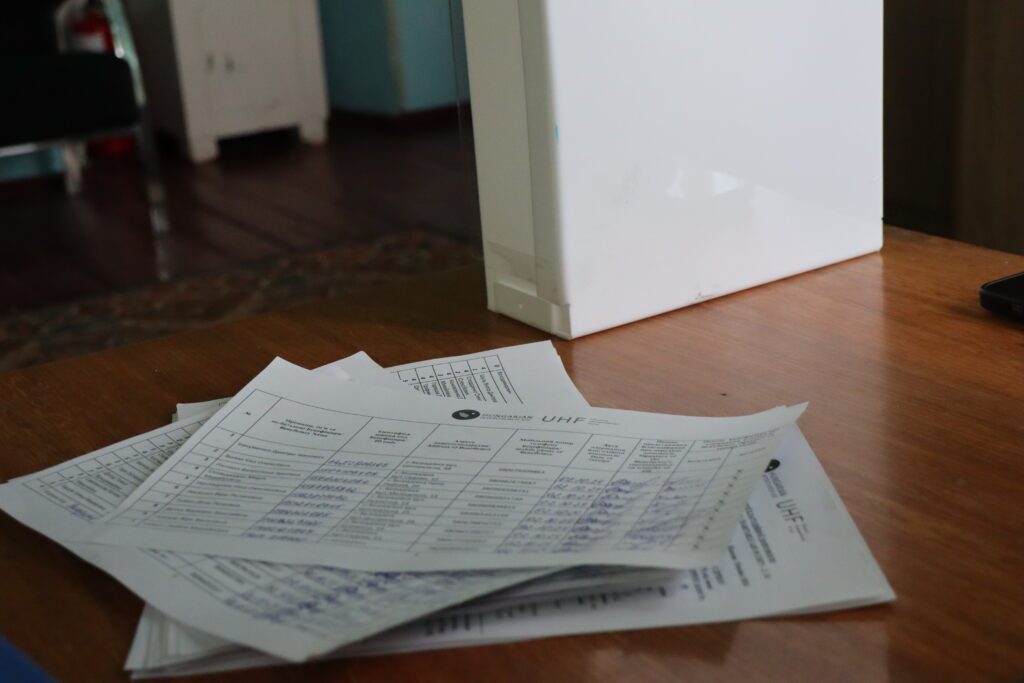

About the project
Natalia is of 505 people who received legal assistance through the programme financed by the Ukraine Humanitarian Fund. Of all beneficiaries, 72% were women including, 38 individuals were people with disabilities. Beneficiaries reached by the project were mainly local residents: elderly people, single women with children and those with low financial and physical capacity to be able to relocate to safer regions, who cannot independently obtain documents or get to state institutions. The project “Multisectoral Support to Conflict-Affected People Residing in Hard-to-Reach Areas of Donetsk, Zaporizhzhia and Kherson Regions” focused on addressing urgent protection needs and demonstrated high level of benefit for people through 20 support points of HIA. These operate in settlements located near the frontline or under constant artillery attacks in the aforementioned 3 regions, where state social institutions do not work in full capacity or have already been evacuated to other regions. All individual legal cases were handled comprehensively and followed-up by lawyer, attorney and legal consultant members of the project funded by the Ukraine Humanitarian Fund implemented in partnership with the League of Socially Responsible Women.
